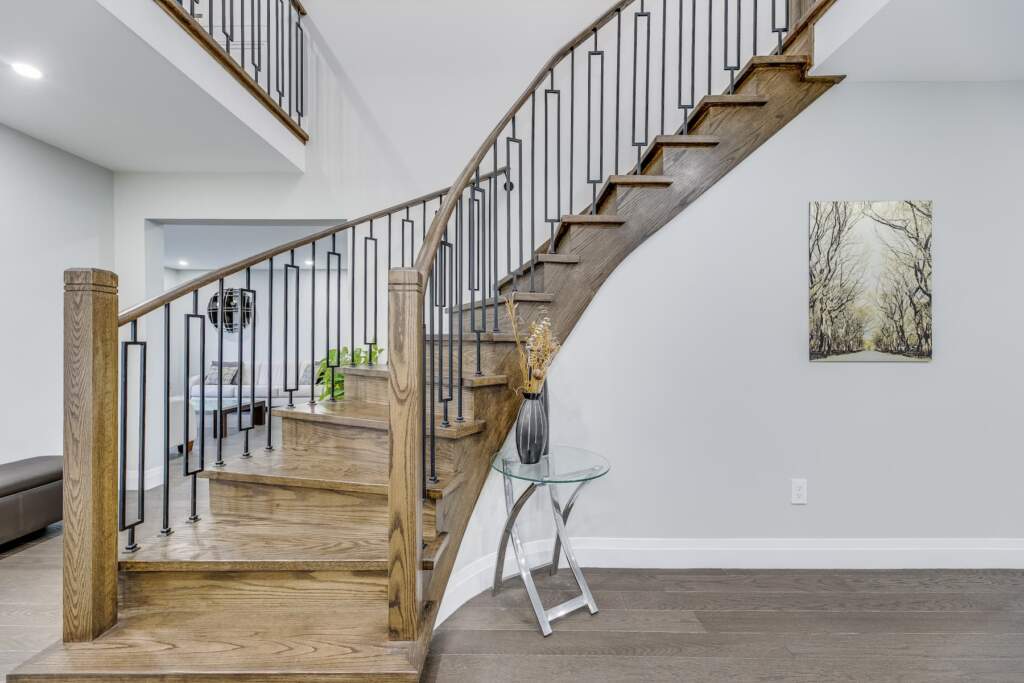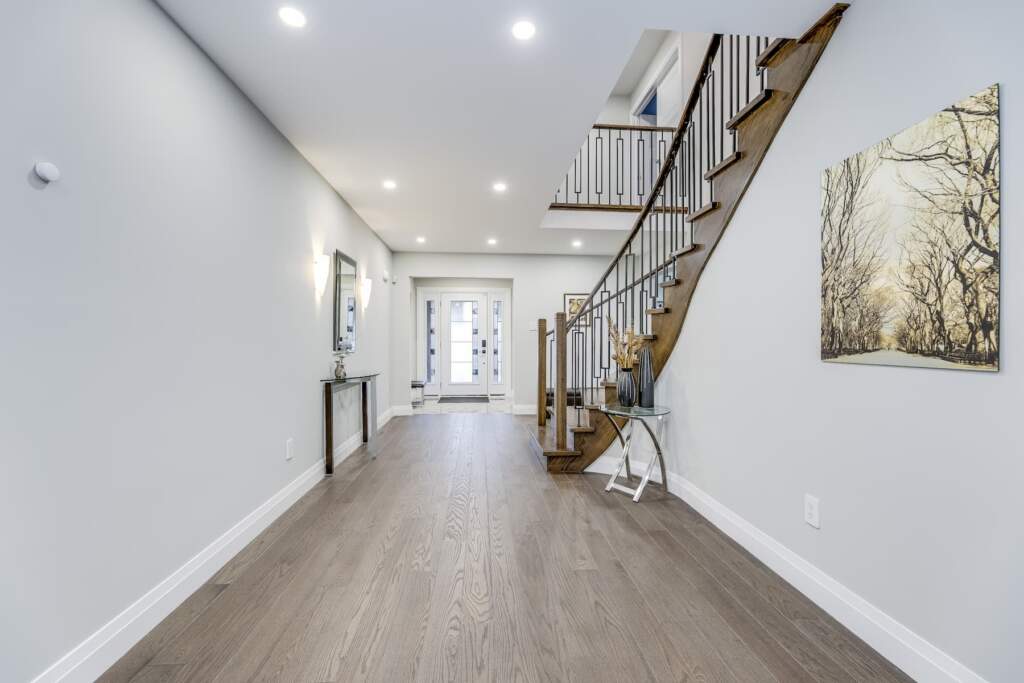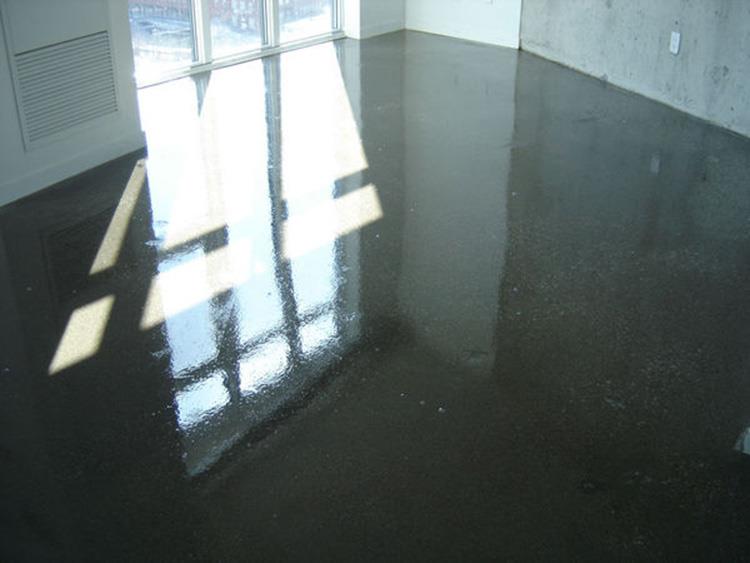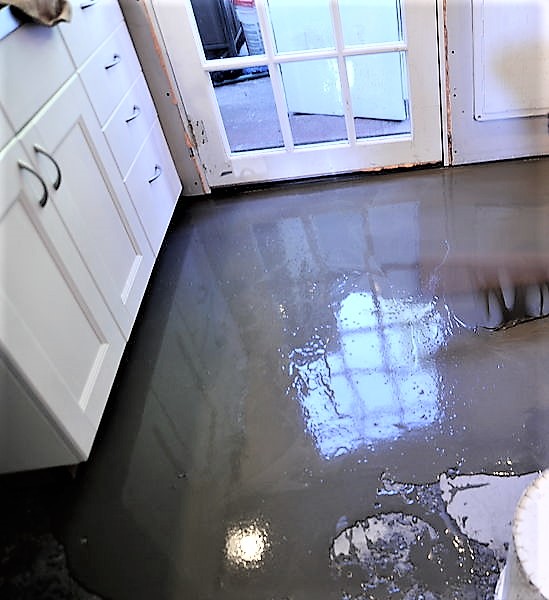Trying to decide what flooring is best for a basement isn’t as easy as it seems. Basements tend to be cool and damp because of their location in the home. The flooring you choose will depend on what you use your basement for.
You might also need different types of flooring in the basement as well. If you have a laundry room, storage area, and an extra bedroom or den. Here are a few tips to help you decide between vinyl or concrete flooring.

Qualities of a Good Basement Floor
The best basement flooring options should be moisture resistant. Certain types of carpeting or wood will absorb moisture which can lead to rotting or mould. Some of the best options for a basement floor are concrete, tile or vinyl.
Keep in mind that underlay can get damp and cause a lot of damage before you are even aware there is a problem. Choosing a floor that won’t absorb the dampness or retain moisture is the best choice.

Pros of Vinyl Flooring
Vinyl flooring has come a long way over the years, and is a perfect option for your basement floors. A vinyl floor won’t absorb moisture and it won’t get mouldy, rot, or react to moisture. It’s also a very low maintenance material for your floors.
It’s also available in many forms, so you can get sheet vinyl or vinyl planks. The best part about vinyl flooring is that it can be made to look like more expensive materials like wood, stone or ceramic, but at a much cheaper price.

Cons of Vinyl Flooring
For all the benefits you will get using vinyl flooring, there can be a few downsides. For all its durability, it can still get damaged. Repair can be difficult as you may need to cut out the damaged area or replace it altogether.
It’s also tough to find a perfect match and you may have a spot that doesn’t match. When glued down, vinyl can be difficult to remove and you can’t refinish the surface if you want something new.

Pros of Concrete Flooring
One of the benefits of a concrete floor in your basement is that it is already there. Concrete is so versatile that you can have it dyed, stained, stamped, or polished to look fantastic.
It’s also cost-effective and readily available. It resists moisture when it is sealed and will last for many years. Concrete floors require very little maintenance and your options for designs and colour are limitless.

Cons of Concrete Flooring
Concrete has many basement flooring ideas, but it is hard. It needs to be sealed to protect it against moisture. Concrete cracks can be difficult to patch or repair.
Concrete floors also tend to be cold so you will need area rugs or extra heating to keep the floor warm.
Contact Us
Call us here at Moose Basements for more information on the best options for basement flooring. We aim for customer satisfaction whatever your basement needs are.
At Moose Basements, we’re proud to serve Toronto and the GTA including North York, Scarborough, Etobicoke, Mississauga, Brampton, Vaughan, Richmond Hill, Markham, Newmarket, King City, Innisfil, Whitby, Nobleton, Barrie, Milton, Burlington, Oakville, Oshawa, Ajax, and Pickering.
Contact us today for a free consultation for basement finishing, renovations, and more.
The post Vinyl vs. Concrete Basement Floors appeared first on Moose Basements LTD.
https://moosebasements.ca/vinyl-vs-concrete-basement-floors/
Did you miss our previous article...
https://manstuffnews.com/basement-ideas/how-to-get-rid-of-spiders-in-your-basement
 Backyard GrillingWeekend WarriorsAdvice from DadBeard GroomingTV Shows for Guys4x4 Off-Road CarsMens FashionSports NewsAncient Archeology World NewsPrivacy PolicyTerms And Conditions
Backyard GrillingWeekend WarriorsAdvice from DadBeard GroomingTV Shows for Guys4x4 Off-Road CarsMens FashionSports NewsAncient Archeology World NewsPrivacy PolicyTerms And Conditions
